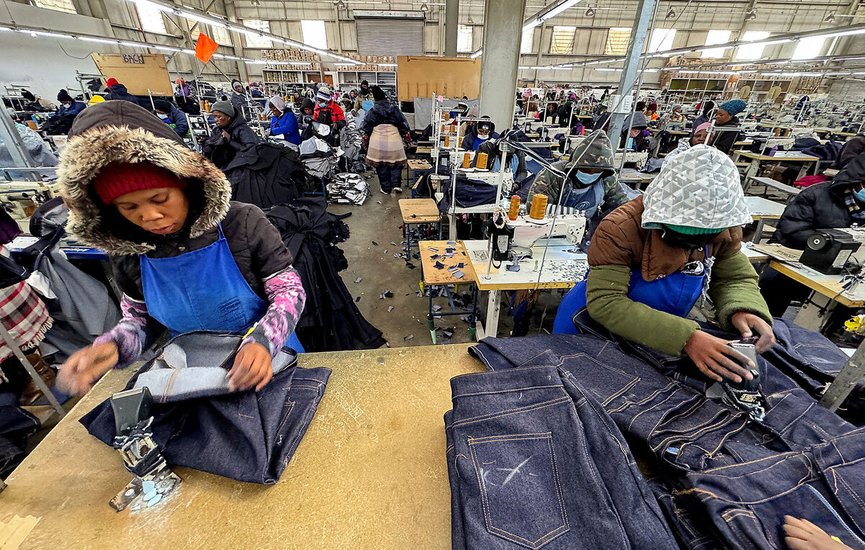In April 2025, the administration of US President Donald Trump introduced sweeping “reciprocal” tariffs, including a staggering 50% levy on imports from Lesotho, the highest of any nation. Although initially suspended to allow for negotiations, that suspension is set to expire on Friday, August 1, 2025—and without a deal, the full tariff will be reinstated.
The tariff formula penalized countries with large trade surpluses relative to imports—a trigger point for Lesotho, which exports textiles worth more than ten percent of its $2 billion GDP to the US, despite minimal US imports.
Factories like Precious Garments (PTY) Ltd and its subsidiary Maseru E‑Textiles—longtime manufacturers of Trump-branded golf shirts and jeans for US brands like Levi’s and Wrangler—have entered talks of initial three-month shutdowns as orders disappear amid the tariff uncertainty.
Buyers in the U.S. have paused new orders, unwilling to risk receiving goods subject to sudden punitive tariffs, forcing factories to suspend lines and lay off workers en masse.
The textile and garment industry employs over 40,000 people in Lesotho, the majority of them women—and represents the largest private employer in the country. Many earn between $146–$168 per month, a modest but vital income that supports entire families.
Union groups warn that as many as 20,000 jobs are now at risk, including those at subcontractors like TZICC Clothing and Lucky Manufacturing.
On July 10, 2025, Lesotho formally declared a two-year national state of disaster to enable emergency measures and expedite job-creation plans targeting 60,000 new jobs across construction and agriculture.
Trade Minister Mokhethi Shelile has assured unions and employers that the government is pursuing negotiations with the U.S. and exploring regional markets through the Africa Continental Free Trade Area (AfCFTA) to reduce dependence on U.S. buyers.
Lesotho has long benefited from the U.S. African Growth and Opportunity Act (AGOA), which allowed duty‑free textile exports and helped fuel a boom in garment assembly tailored for American retail. With AGOA exports making up nearly 90% of manufacturing output, the country’s economy was deeply tied to U.S. access.
But the new reciprocal tariff scheme ignored AGOA provisions, instead punishing smaller economies like Lesotho with high surpluses but low bilateral imports from the U.S.—despite critics labeling the formula “idiotic” and counterproductive.
The Road Ahead: What Lies in Store?
- Factory futures hang in the balance. If the full 50% tariff takes effect after August 1, shutdowns may become permanent in facilities lacking new orders or financial buffers.
- Workers face hardship: months without pay, lack of severance benefits, inability to afford essentials like children’s schooling or medical needs.
- Government strategies: expedited employment stimulus, diversification via AfCFTA, and continuing negotiations in hopes of lowering applied tariffs to 10% or less, which industry leaders say would be survivable.
Conclusion
Without swift resolution—either through a trade deal or AGOA reauthorization—Lesotho’s garment sector, once hailed as a development success, now teeters on collapse. If the 50% tariff is reinstated on August 1, thousands of workers may lose their livelihoods, factories may shut permanently, and the nation’s fragile economy could suffer irreversible damage.
